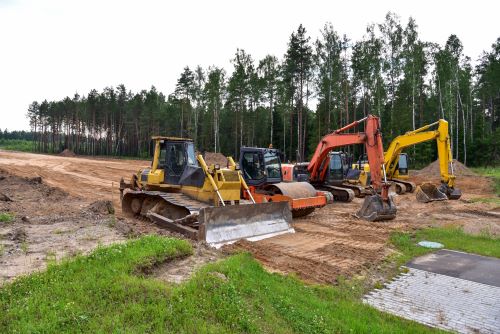
What Heavy Equipment Can I Learn to Operate in Washington?

Do you love big machines and working outdoors? Then you’ve likely considered a career in construction. But you can’t just jump into a jobsite without the right training. When looking into training programs, you’ll want to know the equipment they’ll teach you to operate. After all, being trained and certified in certain machines will give you an advantage in your career. Read on below to find out more information on the heavy equipment you can learn to operate in Washington.
Heavy Equipment Program
Here at West Coast Training, our even mix of in-class and hands-on training gives students the advantage of a well-rounded education. This ensures you thoroughly understand each machine inside and out.
We also make sure to keep class sizes small. This means that each student will get plenty of hands-on time with all of the machines. It also makes sure the instructors don’t overlook anyone.
As for the equipment covered in our Washington-located program? The eight-week course will feature a wide range of machinery. Each of them is one you’ll be sure to come across in a construction-related career.
To start, you will learn to operate backhoes and excavators. Both are very widely used in construction. Other earth-moving equipment includes bulldozers. Also, different types of loaders, both tracked and wheeled. Scrapers are also earth-moving equipment, often used to flatten and level soil to make an even surface.
Then there are graders, also known as motor graders. This heavy equipment is frequently used on roads, both for road construction and for removing snow, dirt, and/or soil from the roads to prepare for laying asphalt.
Compactors are, as you may have guessed, used to compact. There are different types. You’ll learn all about the vibrancy compactor.
You’ll also become an ace at operating utility tractors and trenchers.
In addition to the range of equipment, this Washington program will teach job-related duties, preventative maintenance, and safety.
Crane Operator and Rigger Program
This is another eight-week program. Students learn how to operate and rig different types of cranes. At the end of the program, you should receive the NCCCO certifications necessary for a successful career.
The types of cranes covered in this course include mobile cranes, both the hydraulic boom and lattice boom varieties. Beyond mobile cranes, you will also learn to operate hammerhead, luffing-jib, and tower cranes. In addition to operating and rigging, you will also learn about workplace safety precautions extensively.
Mobile Crane Program
This four-week program covers the mobile cranes, ending with students receiving six crane operator certifications. If you choose to focus on one or more of the cranes specifically, you can ask for just those certifications.
The mobile crane equipment you will learn to operate are the small hydraulic, large hydraulic, lattice boom truck, and lattice boom crawler cranes. You will learn how to set up mobile cranes, plus all of the ways to ensure each jobsite is as safe as possible.
This is also the first part of the Crane Operator and Rigger program. The longer program is for those interested in learning to operate a wider range of Washington crane equipment. While this four-week program also teaches rigging loads, it does not end with the same rigger certification as the eight-week course.
West Coast Training is located in Woodland, Washington. This is a very convenient location for commuters from the Portland area. Housing and transportation are also offered. In addition to our courses on operating these types of Washington equipment, we also provide test preparation and job hunting services.
Does our program sound right for you? Check out our website. There you’ll find testimonials, our credentials, detailed course descriptions, application assistance, and more. Enroll with us today, and you’ll be operating all kinds of heavy equipment in Washington—and beyond—in no time.
